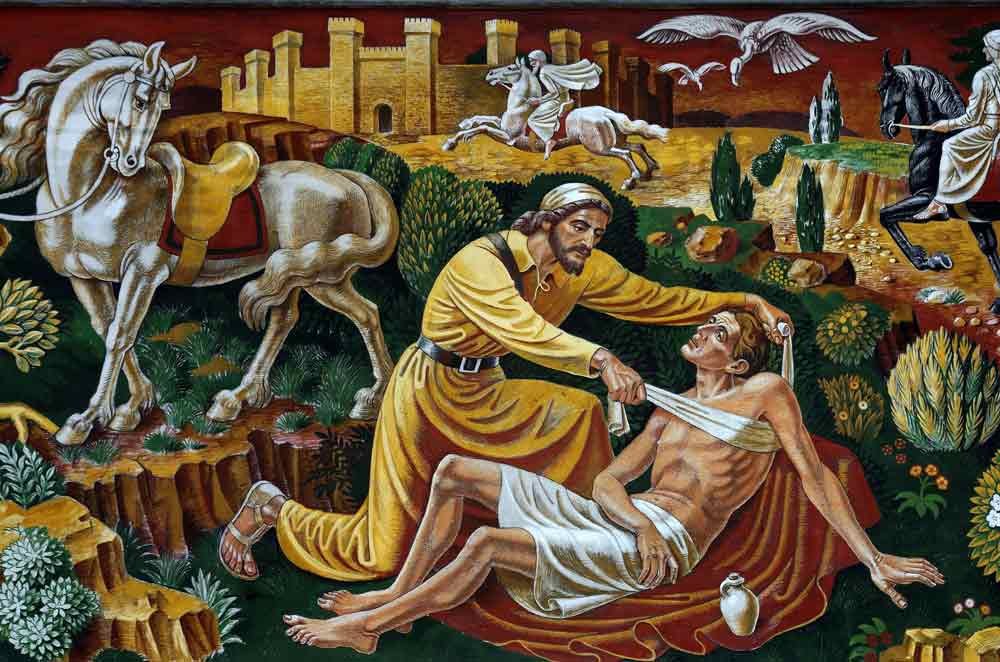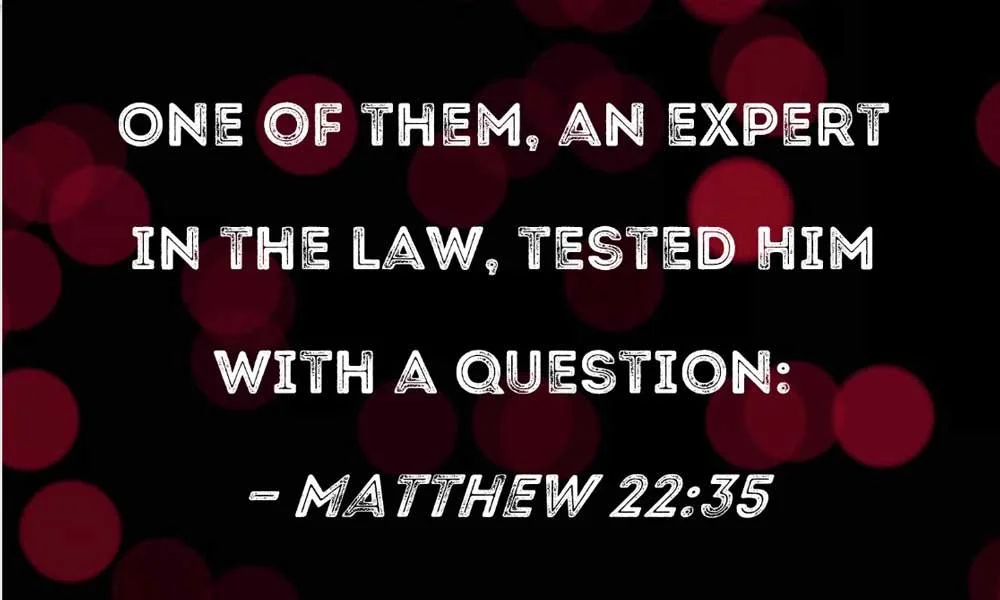PARABLE OF THE GOOD SAMARITAN
When might a question not really be a question?
What does the lawyer’s Bible tell him to do, if he wants to live forever?
Write out the quote by Oswald Chambers. (Hint: It’s in a blue box!)
Can you make sense of the Oswald Chambers quote?
What happened to the man going on a trip?
Who saw the man, but did not stop to help him?
Who helped the man?
How did he help him?
When Jesus tells the lawyer to “Go and do likewise,” what does he want the lawyer to do?
What do you think Jesus is teaching in this parable? Try to come up with at least two things he is teaching us.
• Read •
PARABLE OF THE GOOD SAMARITAN
The Lawyer’s Question
One time, a lawyer came to Jesus with a question.
There’s nothing wrong with questions—God likes good, honest questions. But sometimes, when we ask questions, we aren’t really looking for answers. Sometimes, we’re looking to trick people or put them to the test.
That’s what the lawyer was doing with Jesus.
“Teacher,” he said, “what do I have to do to live forever?”
Jesus replied, “What does your Bible say?”
The man answered, “It says I should love the Lord my God with all that I’ve got, and I should love my neighbor as myself.”
“That’s a good answer,” Jesus told the lawyer. “If you can actually do that, you’ll live forever.”
Of course, no one can do that perfectly. But Jesus wanted to see what was in the man’s heart. And you know what? The man’s heart was not very good. He wanted to show that he could keep the commandments—no problem. So he asked Jesus another question:
“Who is my neighbor?”
The lawyer thought, I’m sure I can love my neighbor as myself, since my neighbors are the people I already like. But Jesus had a different definition of neighbor.
The Story of the Samaritan
So Jesus told a story.
Once there was a man going on a trip, and he fell among robbers. They took his clothes, beat him up, and left him half dead.
Thankfully, a priest was going down the same road. Surely, he would help. But the priest walked to the other side of the road, right past the man.
Then a Levite came. Good news, right? Nope. He did the same thing.
The next man who came was a Samaritan. God’s people didn’t like Samaritans. But you know what? The Samaritan had compassion on the injured man. He took care of the man, brought him to safety, paid for his care, and made sure he was going to get better.
The Lesson
Then Jesus asked, “Which man was a good neighbor?”
The lawyer probably didn’t like that question, because priests and Levites were supposed to be the good guys, and Samaritans were supposed to be the bad guys—but not in this story.
The lawyer had to admit it: “The one who showed mercy was the good neighbor.”
“You go, and do likewise,” Jesus said.
Loving our neighbors means helping people when they’re hurt. It means we don’t make excuses and look the other way. If we dress like good people, talk like good people, and have the reputation of being good people—but we don’t actually do good to people—then it’s not worth much.
We can’t get to Heaven by doing nice things. But when we really know God we will want to love people like he has loved us.
OPTIONAL
Optional means you may do this if you wish, but do not have to if you don’t wish!
Listen to a well-told 6-minute story based on The Good Samaritan here.
Or you can click on the picture below.
► COMPREHENSION QUESTIONS
— please answer with complete sentences
When might a question not really be a question?
What does the lawyer’s Bible tell him to do, if he wants to live forever?
Write out the quote by Oswald Chambers. (Hint: It’s in a blue box!)
Can you make sense of the Oswald Chambers quote?
What happened to the man going on a trip?
Who saw the man, but did not stop to help him?
Who helped the man?
How did he help him?
When Jesus tells the lawyer to “Go and do likewise,” what does he want the lawyer to do?
What do you think Jesus is teaching in this parable? Try to come up with at least two things he is teaching us.
► From EITHER/OR ► BOTH/AND
► FROM Right/Wrong ► Creative Combination
THESIS — Argue the case that a question is always a question!
ANT-THESIS — Argue the case that sometimes what seems to be a question, really isn’t.
SYN-THESIS — How can both of these perspectives be true?















